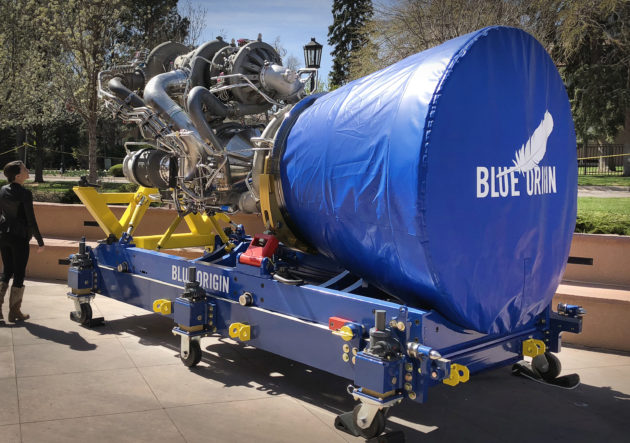
US based United Launch Alliance (UAL) has received the first BE-4 test rocket engine, which will eventually replace the Russian RD-180 booster, used by the United States DoD to launch its heavy satellites into orbit.
The engine will be integrated into UAL’s Vulcan Centaur heavy rocket for its first test launch sometime next year.
“The blueorigin BE4 engine for Vulcan Centaur (rocket) arrived at our Decatur, AL factory. ULA’s next-gen rocket is on track for launch in 2021,” UAL tweeted on July 1. “We are proud to provide our American-made BE4 engine to fly on Vulcan,” Blue Origin tweeted in response.
It is planned to equip BE-4 engines with Vulcan heavy-duty launch vehicles, the successors of the Atlas-5 launch vehicle, which currently uses the Russian RD-180 engines.
As per a 2014 agreement between ULA and Blue Origin, they are to develop the BE-4 rocket engine in order to end the dependence of American heavy satellite launches on Russian RD-180s.
According to Russian rocket engine maker NPO Energomash, some 116 RD-180 engines have been delivered to the United States since 1999. The US Congress in recent years has repeatedly called on the US Air Force to abandon their use due to the US sanctions against Russia.
As per unconfirmed figures, each Russian RD-180 engine costs around $10 million which is considerably cheaper than a competing rocket which can launch a satellite in geostationary orbit . In addition, it has had a flawless record over the years of launching US satellites. The Blue Origin engine’s cost is not known but it was revealed in a 2018 that the company had won a multi-billion dollar launch contract from UAL to supply engines. Rumors of US subsidies having a play both in UAL and Blue Origin have been going around since.
